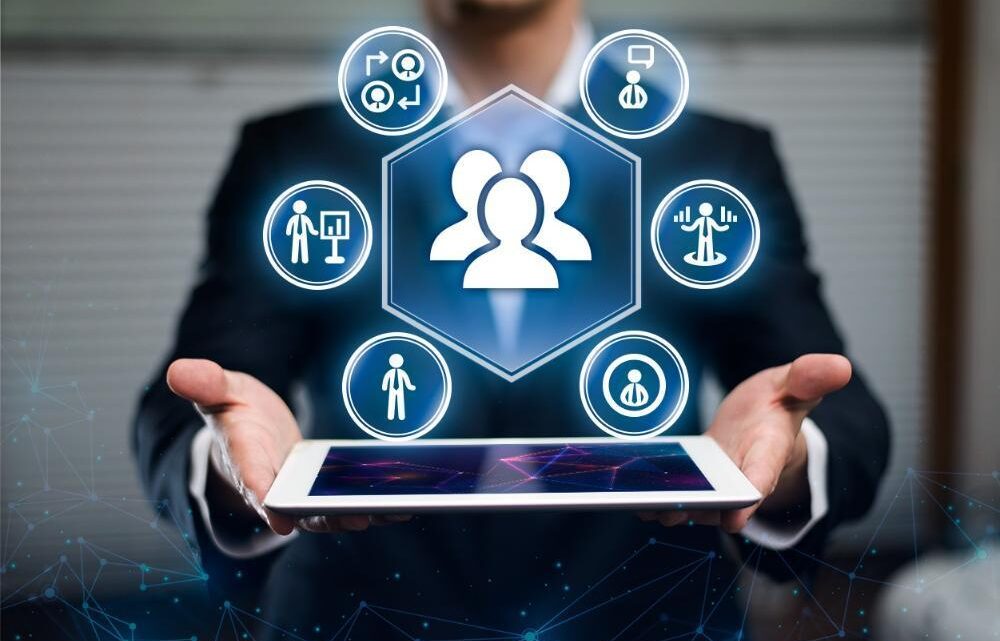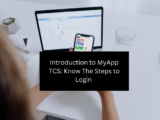ERP Software for Human Resources: Simplifying Employee Management
September 9, 2023 Off By editorERP software is a robust system that integrates various business processes and functions into a single, unified platform. When it comes to human resources, ERP software offers specialized modules and functionalities designed to streamline and simplify employee management.
HR-focused ERP software provides organizations with a comprehensive solution to handle a range of HR activities. It automates key HR processes such as recruitment, onboarding, employee information management, performance evaluations, payroll administration, and employee engagement.
Also, ERP facilitates performance management and employee development and allows organizations to set goals, track performance metrics, and conduct evaluations while also providing feedback to employees. Training plans and performance improvement initiatives can be managed within the ERP system, ensuring employees have access to the resources they need for growth and development.
Significance of ERP Software for Human Resources
One of the primary benefits of ERP software for HR management is the centralization of data. Organizations can easily access and update employee information, qualifications, certifications, attendance records, and more by maintaining a centralized employee database. This eliminates the need for multiple systems and manual data entry, reducing errors and saving time.
ERP software also enables companies to streamline recruitment and onboarding processes. With great features like automated job postings, candidate screening, and centralized applicant tracking, HR professionals can effectively manage the entire hiring process from start to finish.
Streamlining Recruitment
Recruitment and onboarding are vital stages in building a strong workforce, and leveraging ERP software can greatly streamline these processes, enhancing efficiency and effectiveness. ERP software offers robust features that automate tasks, improve candidate screening, and create seamless onboarding experiences.
With it, organizations can automate job postings by utilizing standardized templates and distributing them across various job portals and internal platforms. This not only saves time but also ensures consistent messaging to potential candidates.
Additionally, ERP software provides applicant tracking systems (ATS) that streamline candidate screening. These systems automate resume parsing, keyword matching, and filtering based on predefined criteria, enabling HR teams to efficiently identify the most qualified candidates.
Centralizing applicant tracking and resume management is another advantage of an ERP system. It offers a centralized repository where HR professionals can track candidate progress, collaborate with hiring managers, and ensure effective communication throughout the recruitment process.
Onboarding Processes
When it comes to onboarding, ERP software automates administrative tasks such as collecting employee information, setting up system access, and preparing necessary documents. It enables the creation of personalized onboarding plans, allowing HR professionals to assign tasks, track progress, and provide essential resources through the system.
By utilizing this system, organizations can streamline recruitment and onboarding processes, saving time, reducing errors, and improving the overall experience for both candidates and new employees.
Managing Employee Information and Profiles
Managing employee information and profiles is a crucial aspect of HR management, and ERP software provides a robust solution to streamline these tasks. With it, organizations can maintain a centralized employee database, eliminating the need for disparate systems and manual data entry. HR professionals can easily access and update employee information, including qualifications, certifications, and personal details, ensuring data accuracy and consistency.
Also, it enables efficient tracking of employee attendance, leaves, and time-off requests, providing a comprehensive overview of employee availability. By leveraging the software for managing employee information and profiles, companies can enhance data management, reduce administrative burdens, and improve decision-making processes.
Performance Management and Employee Development
Performance management and employee development are critical components of HR management. ERP software plays a pivotal role in optimizing these processes. It allows organizations to set goals, track performance metrics, and conduct evaluations efficiently. HR professionals can utilize the system to provide feedback and create performance improvement plans tailored to individual employees.
Also, the system facilitates employee development through training initiatives and performance tracking. By leveraging it for performance management and employee development, organizations can enhance productivity, foster employee growth, and align individual performance with organizational goals. The application offers valuable insights, streamlines processes, and promotes a culture of continuous learning and improvement.
Read: Top ERP Trends and their Implications for IT Leaders
Streamlining Payroll and Benefits Administration
Payroll and benefits administration are complex tasks that require accuracy, compliance, and efficiency. With ERP software, organizations can integrate payroll processing, automate calculations, and generate accurate paychecks. The system manages employee benefits, deductions, and taxes, ensuring compliance with regulations. HR professionals can easily generate reports, track payments, and analyze payroll data for insights.
Also, organizations can save time, reduce errors, and improve data security with the software. Employees also benefit from self-service portals, where they can access their pay stubs, update personal information, and make benefit elections, enhancing overall employee satisfaction and engagement.
Employee Self-Service and Engagement
Employee self-service and engagement are essential elements of HR management. The solution offers robust features to facilitate these processes. ERP software provides employees with self-service portals where they can access personal information, submit time-off requests, and view pay stubs. This encourages employees to take ownership of their HR-related tasks while also reducing administrative burdens.
Moreover, the software enables enhanced employee engagement through features like internal communication platforms, performance tracking, and recognition programs. By leveraging ERP for employee self-service and engagement, organizations can foster a culture of transparency, improve communication, and increase employee satisfaction and productivity. Employees can also gain autonomy and convenience, while HR teams can focus on strategic initiatives and creating a positive work environment.
Ensuring Data Security and Compliance
Data security and compliance are paramount, and ERP software plays a crucial role in safeguarding sensitive employee information. ERP systems provide robust security measures, including data encryption, access controls, and user authentication, to protect employee data from unauthorized access or breaches.
Furthermore, ERP software helps organizations comply with privacy and data protection regulations by implementing features such as consent management and data retention policies. Regular backups and disaster recovery measures ensure data integrity and availability. With the ERP application for data security and compliance, organizations can mitigate risks, maintain confidentiality, and adhere to legal requirements, fostering trust and confidence among employees and stakeholders.
Conclusion
ERP software has revolutionized human resources management by simplifying employee management processes. From recruitment and onboarding to performance management, payroll administration, and employee engagement, it offers a comprehensive solution for HR professionals. It streamlines processes, reduces manual effort, and improves the overall employee experience. As organizations continue to embrace digital transformation, adopting software for HR needs is becoming increasingly essential.
Author’s Bio:-
Sneha Rakte is a specialist in communication who excels at recognizing client requirements. She currently works with Sage Software Solutions, an industry leader in supplying small and medium-sized enterprises in India with high-quality ERP software and CRM solutions.



